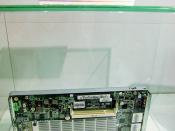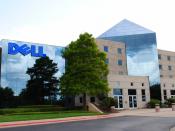Product development at dell
1.What is Dell's business model? How is it different from its competitors?
(1) The Dell model, which relies on direct mail order sales to customers, Dell serviced its customers with combinations of home-based telephone and field-based representatives. Well-trained technical representatives provided the first post-shipment level of support through 24-hour support system, which help customers diagnose and solve problems themselves 91% of the time.
(2) Dell assured product quality by extensively pre-testing all the configuration options it offered. From hardware, software installing to packaging, quality checking occurred at several points along the line.
(3) Dell has smaller inventory, which allowed new technologies to be adopted quicker, and product development cycled to move faster. And Dell also created close, coordinated relationships with its suppliers, vendors, and third-party maintenance providers. This relationship provided Dell with a front-row seat to new technologies its suppliers developed.
To sum up, Dell's business model is a pull system, production is driven by customers' needs; almost all the services are through telephone and keep good relationship with vendors and suppliers.
The main competitors are mail order firms such as Gateway 2000 and CompuAdd, which imitate the Dell 's way. Compaq sold computer through recruited independent full-service retail dealers, Dell's product sold through direct sales, which keep the inventory and distribution budget low. IBM and Apple, spent a lot of R&D money to keep the leading position of the technology, while Dell didn't put that much money in that, Dell produce the computers with demanded quality at a reasonable price.
2. How would you characterize Dell's approach to product development? If your managing product development at Dell, what would you change?
In the early nineties, Dell's R&D budget is smaller than that of most other large computer firms. Product development was informal, run by...


